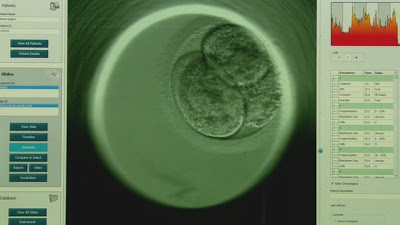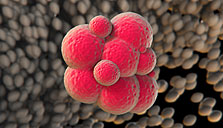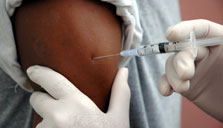 https://www.cmf.org.uk/wp-content/uploads/2023/08/embryo-1.jpg
225
400
Dr Peter Saunders
https://www.cmf.org.uk/wp-content/uploads/2023/08/CMF-Logo-MONO-TRANSPARENT-340px.png
Dr Peter Saunders2013-05-17 10:23:072024-01-22 09:33:48Time lapse imaging of embryos – exciting breakthrough or just eugenics by another name?
https://www.cmf.org.uk/wp-content/uploads/2023/08/embryo-1.jpg
225
400
Dr Peter Saunders
https://www.cmf.org.uk/wp-content/uploads/2023/08/CMF-Logo-MONO-TRANSPARENT-340px.png
Dr Peter Saunders2013-05-17 10:23:072024-01-22 09:33:48Time lapse imaging of embryos – exciting breakthrough or just eugenics by another name?blogs
 https://www.cmf.org.uk/wp-content/uploads/2023/08/embryo-1.jpg
225
400
Dr Peter Saunders
https://www.cmf.org.uk/wp-content/uploads/2023/08/CMF-Logo-MONO-TRANSPARENT-340px.png
Dr Peter Saunders2013-05-17 10:23:072024-01-22 09:33:48Time lapse imaging of embryos – exciting breakthrough or just eugenics by another name?
https://www.cmf.org.uk/wp-content/uploads/2023/08/embryo-1.jpg
225
400
Dr Peter Saunders
https://www.cmf.org.uk/wp-content/uploads/2023/08/CMF-Logo-MONO-TRANSPARENT-340px.png
Dr Peter Saunders2013-05-17 10:23:072024-01-22 09:33:48Time lapse imaging of embryos – exciting breakthrough or just eugenics by another name?
Embryonic stem cells from cloned human embryos – six reasons for caution
The newspapers are full today of the news that scientists in the US state of Oregon have produced embryonic…

Joy, sorrow and satisfaction – medical mission in Ecuador
My own personal journey to becoming a medical missionary began when I finished secondary school and went…

It’s exam time! Can smart drugs make you smarter at this testing time?
While a cup of strong coffee is probably the choice of drink for most people studying for exams, perhaps…

The ‘Groningen protocol’ for euthanasia of disabled babies in the Netherlands
In an interview this morning on BBC Five Live (at 0705) on the Paul Lamb case (listen here) I was asked…

Don’t be fooled by Lord Falconer’s ‘modest’ assisted suicide proposals
Lord Falconer has finally announced that his long awaited assisted suicide bill will be tabled in the…

Doctors should not be forced to provide emergency contraception
The Independent has run the story of a ‘Christian-run NHS GP surgery’ which has apparently ‘attracted…

Several leading bioethicists defend the practice of infanticide this week in leading medical journal
In February 2012 two bioethicists provoked international outrage with an article advocating infanticide.
Writing…

Marie Fleming loses Supreme Court appeal challenging ban on assisted suicide
A 59-year-old Irish woman today lost her Supreme Court challenge to the ban on assisted suicide.
Marie…

What the UK needs to learn from the worldwide Church
Last week there was a meeting between David Cameron and leaders of major UK NGOs on the process to find…

GMC and RCM must now move urgently to review their abortion guidance in light of Glasgow midwives court ruling
Two Roman Catholic midwives have today won a landmark legal battle to avoid taking any part in abortion…

Losing trust – why immunisation programmes fail
What do South Wales, North Nigeria and Northwest Pakistan have in common? They all have outbreaks of…


Debate: To strike or not to strike? (Part 2)
Junior doctor members of the BMA are voting on industrial action over the new contract proposed by the government. Needless to say there is a range of opinion among CMF members on the subject. So we asked two of our members to help us by sharing opposing views. These articles were commissioned for the forthcoming […]
Debate: To strike or not to strike? (Part 1)
Junior doctor members of the BMA are voting on industrial action over the new contract proposed by the government. Needless to say there is a range of opinion among CMF members on the subject. So we asked two of our members to help us by sharing opposing views. These articles were commissioned for the forthcoming […]
New tests for pregnant women are discriminatory, so who is driving them and why?
The NHS is considering introducing a new test for pregnant women that will make it much easier to detect and search out any babies with Down Syndrome (DS) or other chromosomal differences. We have covered in more detail some of the issues that these new tests raise, both here and here. However it seems appropriate […]
Fetal Anomaly Screening in Pregnancy: more thoughts on the new tests
The NHS is considering introducing a new test for pregnant women that will make it much easier to detect and search out any babies with Down Syndrome (DS) or other chromosomal differences. A superficial reading of new screening recommendations suggests that implementing new tests will save lives – and money too. It will give […]
New screening test for Down’s creates more problems than it solves
The UK National Screening Committee (NSC) is recommending a new test for pregnant women that will detect a higher proportion of fetuses with Down Syndrome. The test is non-invasive and makes use of cell free DNA from the fetus (cfDNA) circulating in the mother’s blood. It is far more accurate than present early pregnancy screening […]
The fragile case for new brittle bone treatment
Researchers are planning to use stem cells extracted from aborted fetuses to try to treat unborn babies with brittle bone disease, osteogenesis imperfecta (OI). This new trial will involve injecting stem cells into a baby diagnosed in the womb as having OI. The stem cells will divide and become incorporated into bone tissue, where the […]
Womb transplants: should we be concerned?
This week, the Health Research Authority granted ethical approval for a trial of ten uterine transplants, with a view to allowing women without a womb a chance to conceive and carry their own child. This follows on from three successful pregnancies in Sweden over the last twelve months to women who have had such […]
Anger, confusion, injustice – should Christian doctors strike?
For the first time since 1975, it looks like doctors are lining up to strike. Morale among juniors is lower than ever – over the last five years many of us have seen it dissipate before our eyes. I am sad to see colleagues and friends upset at this and know it will affect […]
In five years time (or less), expect to see the UK permit the creation of GM babies
There has been a flurry of news reports (and here) in favour of a new technology that could edit the genome of human embryos, making changes that would be passed down the generations. More information on the benefits and potential costs of this interesting new technology, crispr/cas9, is here. The news reports have been […]
The campaign to change surrogacy laws suffers a set-back
According to newspaper reports last week, a one year old boy has been left in limbo, as a ward of court, with no legal father or mother, due to outdated surrogacy laws that deny his genetic father the right to be his legal father. As is often the case with news items, there is more […]
Defeat of the Marris Assisted Dying Bill – some reflections on how MPs voted
The Assisted Dying (No 2) Bill of Labour MP Rob Marris was the eleventh attempt in twelve years to legalise assisted suicide through British Parliaments. But its overwhelming defeat yesterday (11 September 2015) by a margin of 212 votes (330 to 118) should settle this matter for a decade. It is striking (and indeed fitting) […]
Maternal mortality: is there a link with abortion legislation or not?
The question of whether restrictive laws on abortion lead to fewer maternal deaths, or more maternal deaths, is hotly debated. Those who are ‘pro-life’ and want to see more restrictive abortion laws say that fewer abortions leads to fewer maternal deaths, with Northern Ireland providing one example close to home: ‘Ireland and Northern Ireland show […]